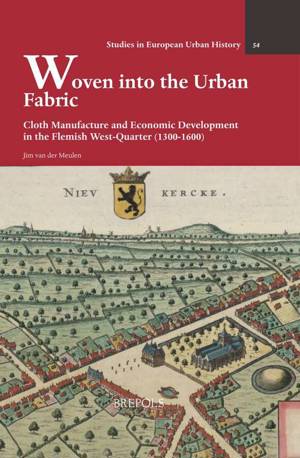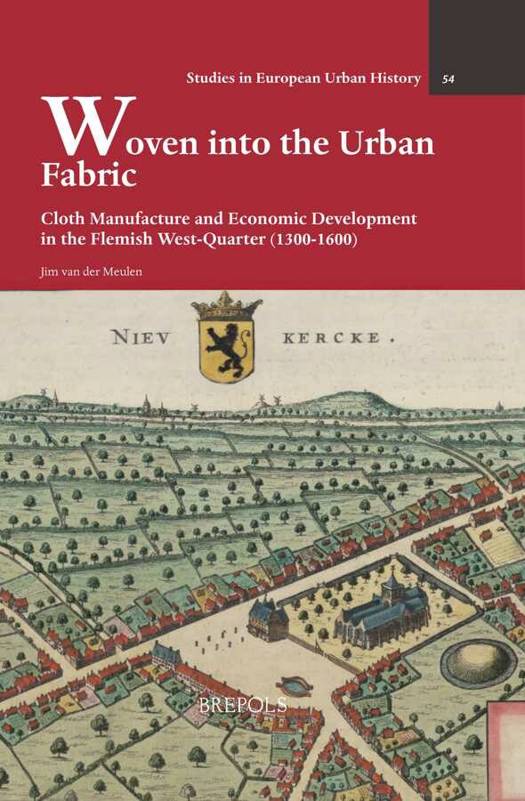
- Retrait gratuit dans votre magasin Club
- 7.000.000 titres dans notre catalogue
- Payer en toute sécurité
- Toujours un magasin près de chez vous
- Retrait gratuit dans votre magasin Club
- 7.000.0000 titres dans notre catalogue
- Payer en toute sécurité
- Toujours un magasin près de chez vous
Woven Into the Urban Fabric
Cloth Manufacture and Economic Development in the Flemish West-Quarter (1300-1600)
Jim Van Der Meulen
89,04 €
+ 178 points
Description
This regional study focuses on the socio-economic development of the so-called West-Quarter of the county of Flanders during the period 1300-1600. Through the expansion of potent textile industries in the countryside from the fourteenth century onwards, this region gradually attained distinctly 'urban' characteristics in terms of production scale, specialisation, product quality, and the aim for external markets. By the middle of the sixteenth century the West-Quarter had even become one of Flanders's main production regions of woolen cloth. This book assesses how and why this economic expansion took place, why it happened at that particular moment, and why in this region. The broader aims of the research are twofold: first, to offer a contribution to the debate on Europe's transition from a 'feudal' to a 'capitalist' or market economy by looking at the influence of specific social structures and institutional frameworks on the economic development of pre-industrial societies. Secondly, this book contributes to the debate about the divide between town and countryside in pre-industrial Europe, combining the outlooks and methods of both urban and rural historians in order to qualify this supposed dichotomy.
Spécifications
Parties prenantes
- Auteur(s) :
- Editeur:
Contenu
- Nombre de pages :
- 251
- Langue:
- Anglais
- Collection :
- Tome:
- n° 54
Caractéristiques
- EAN:
- 9782503594552
- Date de parution :
- 24-02-22
- Format:
- Livre relié
- Format numérique:
- Genaaid
- Dimensions :
- 184 mm x 260 mm
- Poids :
- 680 g

Les avis
Nous publions uniquement les avis qui respectent les conditions requises. Consultez nos conditions pour les avis.






